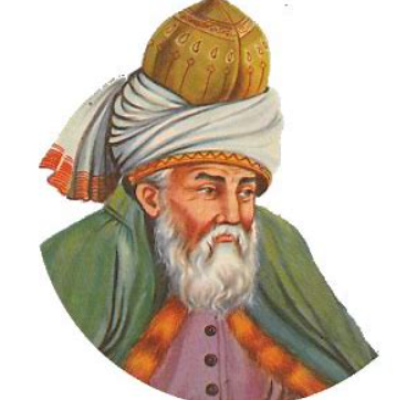Jalaluddin Rumi (1207–1273 CE), born in Balkh (then part of Persia, now in Afghanistan) and later settled in Konya (present-day Turkey), was a renowned Persian poet, Islamic scholar, theologian, and Sufi mystic. Widely celebrated as one of the greatest spiritual poets in history, Rumi’s teachings transcended religious and cultural boundaries, emphasizing love, unity, and the pursuit of divine truth. His works have inspired countless readers across the world, making him a timeless figure in both Eastern and Western literature.
Rumi’s most celebrated masterpiece, Masnavi-i Ma’navi (“Spiritual Couplets”), is often regarded as the “Qur’an in Persian.” This six-volume collection of mystical poetry weaves stories, parables, and spiritual reflections to guide seekers toward deeper understanding of faith, love, and the divine. The Masnavi has been studied for centuries as a cornerstone of Sufi thought and remains one of the most widely read works of Islamic spirituality. His poetry continues to resonate across cultures, offering wisdom on human struggles, spiritual longing, and the transformative power of love.
Throughout his life, Rumi attracted devoted disciples and followers, with the most notable being Shams of Tabriz, whose profound influence transformed Rumi’s spiritual outlook and inspired much of his poetry. His legacy lives on through the Mevlevi Sufi Order, also known as the “Whirling Dervishes,” who express devotion through music, poetry, and dance. Today, Rumi is remembered not only as a Persian poet and mystic but also as a universal voice of compassion and spirituality, whose words continue to illuminate hearts around the globe.
✨ Do you want me to keep all author bios uniform in this 3-paragraph narrative style only, or should I also add a short country line at the end (e.g., Country: Persia [now Iran]) for quick reference?


